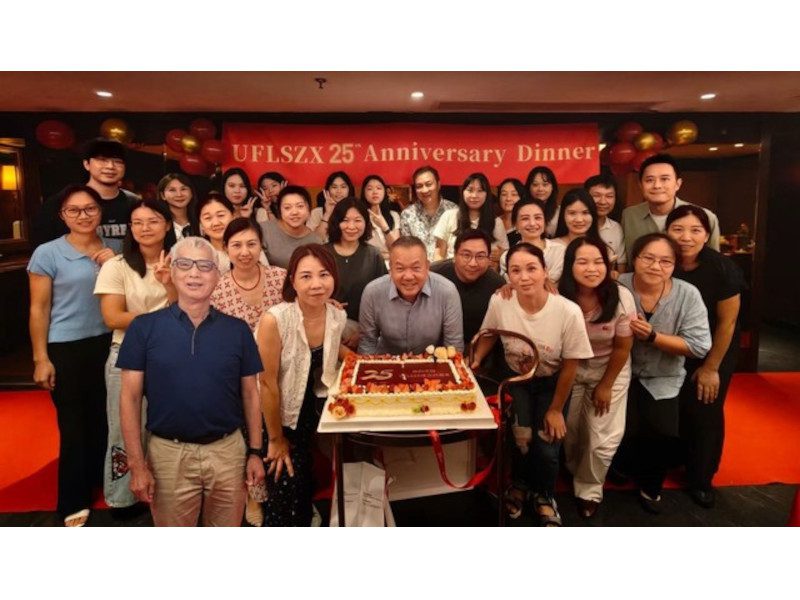Henk Jan Gerzee, CPO of the Digital Container Shipping Association, discusses overcoming certain hurdles on our quest to achieve 100% eBL usage by 2030
DCSA has been focusing on digital standards for the container shipping industry. How do you see these initiatives shaping the future of global trade?
Trade processes have maintained a heavy reliance on paper documentation. The container shipping industry is no exception, with the Bill of Lading (B/L) – a crucial document that facilitates global trade – serving as a prime example. We believe that the standardisation and digitalisation of trade documentation, starting with the B/L, has various benefits for all stakeholders – including faster processing, reduced errors and improved data visibility across the supply chain by giving stakeholders easy access to accurate, up-to-date information.
Central to this goal is widespread adoption of the electronic Bill of Lading (eBL). In order to support this, last February, the CEOs of our nine member carriers publicly committed to 100% eBL by 2030, and 50% by 2027. This is a tremendous promise to the industry, as well as an important invitation to all stakeholders across the global trade space to join the initiative. Last September, the Future of International Trade (FIT) Alliance launched the eBL declaration which aims to secure commitment from stakeholders across the international trade sector to collaborate on driving digitalisation, with a focus on the eBL. To date, more than 100 organisations have signed the declaration, including ocean container carriers, cargo owners, shippers, financial institutions, freight forwarders, solution providers and others. This highlights stakeholders’ desire to create an ecosystem for containerised trade that is more efficient, resilient, secure, and supports future growth.
Achieving 100% electronic Bills of Lading by 2030 is an ambitious goal. What are some of the major hurdles you foresee in achieving this, and how is DCSA planning to overcome them?
We recognise that achieving 100% eBL by 2030 is ambitious. Reaching this milestone requires all stakeholders from across the industry to act swiftly and collaborate to ensure implementation and adoption standards, among other important actions. With just six years remaining until our target date, it is crucial for all stakeholders to join forces now.
We want stakeholders to feel empowered to act. In order to achieve this, it is important that corporates from across the supply chain motivate their peers to enact meaningful change. We are encouraged by the progress that has been made to date, with freight forwarders, banks and technology service providers among those actively engaged in implementing eBLs. It is important to stress that all stakeholders in global trade join and we especially need shippers to actively participate. As key players in the industry, they hold significant influence, and their cooperation will be pivotal to meeting the 100% eBL goal.
In addition, legal and regulatory barriers, as well as inconsistencies, need to be addressed. In many countries across the globe, it is ‘possible’ to use but not always as easy as one might wish. In some jurisdictions, legal or regulatory requirements prohibit the use of electronic documents entirely, while in others a lack of legal stance or regulatory inconsistencies create fragmentation and ambiguity which further hinders efforts.
DCSA is spearheading a number of initiatives to overcome these issues. We are working alongside industry leaders to pioneer research into legal and regulatory hurdles and continue to support efforts to overcome them. Also, as part of the FIT Alliance, we are collaborating with leaders from across the industry to push for meaningful change through the eBL declaration. Meanwhile, along with our nine member carriers, we have published data and process standards to facilitate acceptance and adoption of an eBL across the industry and support interoperability.
Collaboration seems to be a key aspect of DCSA’s approach. Can you elaborate on how DCSA collaborates with other stakeholders in the industry to drive innovation and standardisation?
The work that goes into all of our standards is the result of ongoing, daily collaboration with subject matter experts from our member organisations. Our success comes from the implementation and adoption by our members as well as industry stakeholders – including Beneficial Cargo Owners (BCOs) and freight forwards. Depending on the exact topic for standardisation, stakeholders can range from legislators and governments to banks, solution providers, and Non-Vessel Operating Common Carriers (NVOCCs).
At industry level, there are a lot of stakeholders playing a crucial role in advancing the digitisation of global transportation and trade. DCSA actively collaborates with many of them to achieve the shared objective of enhancing the efficiency and sustainability of supply chains. For instance, DCSA contributes to various initiatives such as the European Commission’s Digital Transport and Logistics Forum (DTLF), the UK’s Electronic Trade Documents Act, the United Nations Centre for Trade Facilitation and Electronic Business (UN/CEFACT), and the US Federal Maritime Commission’s (FMC) Maritime Transportation Data Initiative (MTDI). Through these partnerships, we aim to drive meaningful progress in the digitalisation of transportation and trade processes worldwide.
Additionally, DCSA is one of five founding members of the FIT Alliance (alongside BIMCO, FIATA, ICC, and Swift) whose key objectives are to raise awareness and accelerate adoption of a standards-based eBL across all sectors of the shipping industry. After we launched the ‘100% eBL by 2030’ commitment, the FIT alliance launched the eBL declaration, which aims to secure commitment from stakeholders across the international trade space to collaborate on driving digitalisation within their industries. This was an exciting milestone in our journey towards the standardisation of container shipping documentation as, in order to achieve the widespread use of eBLs, all industry stakeholders must be on board with the adoption of digital standards.
What do you see as the biggest opportunities and challenges for the container shipping industry in the next five to ten years, and how is DCSA positioned to address them?
We still see many opportunities to improve the customer experience, reduce environmental waste and make industry practices more sustainable. We believe this can be achieved if all industry stakeholders collaborate and connect through technology and digital standards to facilitate change for a better future for the industry.
There is still some way to go when it comes to improving the customer experience within the container shipping industry. The industry needs to move away from the use of paper and old-fashioned technologies, which are costly, prone to error, slow and, ultimately, does not support global trade growth. Stakeholders need to be fully equipped to exchange information in a timely and accurate manner, with digital documentation being a key way to facilitate this.
Digitalisation is a driving force for change, and we are beginning to see progress. Regulation will enable more widespread digitalisation and the industry is making progress in this regard. Last year, for instance, the UK passed the Electronic Trade Documents Act, making electronic documents recognisable by law. Meanwhile, the UN Model Law on Electronic Transferable Records continues to drive adoption globally.
Some good progress has been made with regards to eBL uptake: usage rates have increased from 1.2% at the end of 2021 to 3.75% in 2023. However, this number needs to increase significantly – and fast. Let me stress again, industry stakeholders must collaborate, both at sectoral and organisational level. If we are to achieve our 100% eBL target by 2030, the entire industry must come together to create a positive force for change.
Read more news and exclusive features in our latest issue here.
Never miss a story… Follow us on:
International Trade Magazine
@itm_magazine
@intrademagazine
Media Contact
Joseph Clarke
Editor, International Trade Magazine
Tel: +44 (0) 1622 823 920
Email: editor@intrademagazine.com








